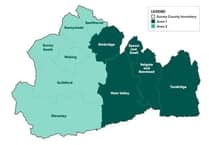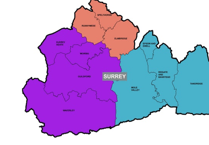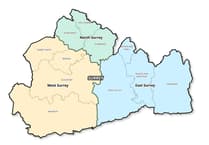My former Department of Health colleague Chris Whitty (now Sir Chris Whitty) wrote a powerful article in The Sunday Telegraph this week – and it was not about Covid.
He pointed out that separating human faeces from drinking water was one of the biggest public health achievements of the past two centuries – but we seem to be forgetting the lessons learned.
This is because although tap water remains safe, our rivers are not. Many people, including children, swim in them, something we should welcome. Chris Whitty describes the raw sewage going into our rivers from storm overflows as a serious public health issue.
What should be an ‘exceptional’ situation when a sewage system fills up and is forced to discharge into the river system is far from exceptional: last year there were nine overflows in Grayswood and Godalming, 12 in Bramley, 29 in central Farnham and 76 in Chiddingfold.
They are all into the River Wey apart from at Chiddingfold where it is the Walkham stream, part of the River Arun basin, which is affected. In total in our area, so-called exceptional sewage discharges happened for 1,562 hours – or an average of four hours every single day.
There is clearly an issue around the capacity of our surface water drainage systems as I discussed with Sarah Bentley, chief executive of Thames Water, when I recently visited the Haslemere sewage treatment plant.
It is welcome that the government has now changed the law to require all water companies to reduce their discharges but Waverley could also help by making it harder for people to get planning permission for new houses and extensions unless rainwater is directed into the surface water rather than the sewage system.
We can also help as consumers in a number of ways, not least by making sure we do not flush wet wipes down toilets.
But more needs to be done which is why this week I met environment secretary George Eustice. He tells me that later this year £2.5 billion will be allocated to addressing the problem in the most badly-affected parts of the country.
He is also requiring all water companies to bring forward their investments to clean up rivers. Ofwat, the water regulator, is also finally starting to crack the whip.
Thames Water boss Sarah Bentley has agreed to come to a meeting in the constituency later in the year and I am hoping she will commit to a concrete timetable for the reduction of overflows locally (although Thames are not responsible for the Chiddingfold overflows which are the responsibility of Southern Water).
I have also invited Philip Dunne, the MP who chairs the Environment Audit Committee in parliament, to come down because he has been campaigning hard on these issues.
You should get a leaflet and survey from me in the next few weeks about these issues which form part of my ‘green spaces’ campaign to give better protection to our local countryside, including getting national park status for the Surrey Hills and securing more protection for neighbourhood plans.
But please feel free to email me in the meantime ([email protected]) – there is much we can do together on these issues.





Comments
This article has no comments yet. Be the first to leave a comment.